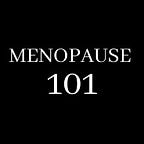How Do You “Treat” Menopause?
By Dr. Suzanne Gilberg-Lenz
Today in “obvious statements”: Menopause is not something most people who menstruate look forward to. It’s a time in your life (usually occurring sometime between the mid-40s and early-50s) when you stop menstruating and your ovaries stop producing estrogen and progesterone, two hormones key to female reproductivity. In addition to marking the end of your reproductive years, menopause is known to be associated with a number of less-than-appealing symptoms and side effects, including (but not limited to) weight gain, mood swings, vaginal dryness, and hot flashes.
No matter how you feel about the impending arrival of menopause, it happens to all women eventually. Still, just because menopause is inevitable doesn’t mean that living with the full severity of its symptoms is. There are plenty of ways to treat menopause and its symptoms, from hormonal therapies and other medications to relatively low-key lifestyle changes that may have a huge impact on your health and day-to-day comfort during the menopausal transition.
What Is Hormone Therapy?
One of the first treatment options that comes to mind for many people when it comes to menopause is hormone therapy. It’s an intuitive solution — after all, many of the major symptoms of menopause and perimenopause (the time period — four years, on average — leading up to menopause, when a woman’s body begins the transition out of its reproductive years) are caused by the decrease in estrogen and progesterone, two hormones the body stops producing during menopause.
Since many menopausal symptoms, like hot flashes, can be traced to the fluctuating levels of these hormones, hormone therapy works by steadying the levels of these hormones in the body.
Today, for most doctors, the most commonly prescribed hormone treatment is with progesterone. Combined hormone therapy may include both estrogen and progesterone. Which kind of hormone therapy you undergo is determined best by whether or not you have a uterus. Those who have had hysterectomies and don’t have a uterus are the only candidates for estrogen therapy on its own, while women who still have their uterus are more likely to be prescribed progesterone-only or combined hormone therapy.
What Are the Benefits of Hormone Therapy for Treating Menopause?
Hormone therapy can help reduce your risk of colon cancer and diabetes as well as reduce the severity of a number of symptoms and side effects associated with menopause and perimenopause, including:
● Hot flashes
● Vaginal dryness
● UTIs
● Arthritis pain
● Sleep problems
What Are the Risks of Hormone Therapy for Treating Menopause?
While it can be effective in treating many symptoms of menopause, hormone therapy may also carry risks in some women, particularly those with pre-existing conditions or a genetic history of any of the following:
● Breast cancer
● Uterine cancer
● Heart disease
You should talk to your doctor about the risks and benefits of hormone therapy and determine if it’s right for you.
What Other Treatment Options Are Available for Menopause?
If hormone therapy doesn’t feel right for you, there are plenty of other treatment options to explore, including other medications, alternative medicine treatments, and lifestyle changes.
When it comes to prescribing non-hormonal medications as treatment for menopause, what your doctor prescribes will depend on the symptom you’re looking to treat. Hot flashes, osteoporosis, and mood swings are examples of some common menopausal symptoms that may be successfully treated with non-hormonal medications.
There are also several lifestyle changes you can make to minimize the impact of several symptoms associated with perimenopause and menopause, including avoiding alcohol, caffeine, and smoking, maintaining a healthy diet and weight, exercising regularly, and staying hydrated. Some people also choose to explore alternative treatment options including homeopathy, herbal treatments, and acupuncture.
The information provided on StateOfMenopause.com is not intended and should not be construed as medical advice, treatment, or diagnosis. Always seek the guidance of a qualified healthcare provider with any questions or concerns regarding your health.
